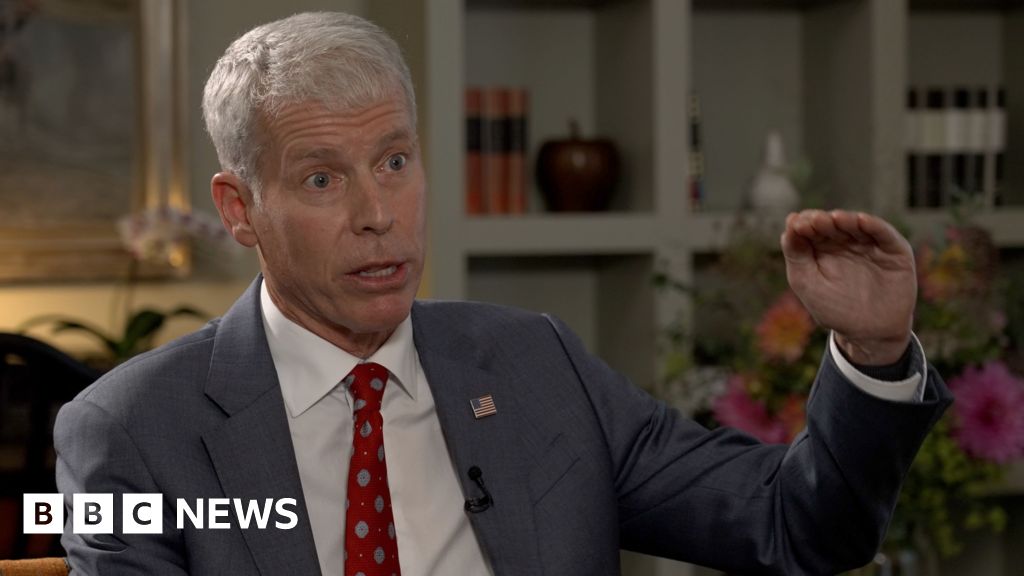Science
US Energy Secretary Predicts Nuclear Fusion Could Power Homes by 2038

The US Energy Secretary has made bold predictions regarding the potential of nuclear fusion to revolutionize energy production within the next two decades. In an interview with the BBC, Chris Wright stated that advancements in artificial intelligence (AI) could enable the harnessing of nuclear fusion, the process that powers the sun, within the next five years. He asserted that this technology could begin supplying electricity to grids worldwide in an estimated eight to 15 years, marking a significant step in the effort to reduce greenhouse gas emissions.
Fusion Energy: A Promising Future
Wright emphasized the transformative potential of nuclear fusion, noting that it could provide vast amounts of low-carbon energy without contributing to global warming. He acknowledged the complexity of the process, which involves heating atoms to temperatures far exceeding those of the sun. Despite skepticism from some scientists who believe that commercial fusion power plants are still far off, Wright expressed confidence in the technology’s imminent viability.
“With artificial intelligence and what’s going on at the national labs and private companies in the United States, we will have that approach about how to harness fusion energy multiple ways within the next five years,”
said Wright. He added that the integration of this technology into the electric grid could occur in the next decade or so.
In addition to discussing fusion, Wright urged the UK government to reconsider its stance on fracking, advocating for new oil and gas licenses in the North Sea. He cautioned against Europe’s increasing dependence on renewable technologies from China, suggesting that such reliance could jeopardize energy security. “It looks like the Chinese could control what’s going on with your energy system,” Wright remarked.
Fracking and Its Economic Implications
Wright’s comments on fracking coincide with his assertion that it could have a “tremendous” impact on the UK economy. By tapping into oil and gas reserves through fracking, he claimed that the UK could revive manufacturing, create blue-collar jobs, and lower energy costs. Although Reform UK has indicated support for fracking should they win the next election, experts from the British Geological Survey have warned that the potential for significant oil and gas production in the UK may be limited.
In the interview, Wright defended the Trump Administration’s cuts to renewable energy subsidies. He pointed out that wind energy has received support for over three decades, while solar energy has benefitted from subsidies for more than 25 years. “Isn’t that enough?” he questioned, suggesting that the renewable sector should now be self-sufficient.
Additionally, the Energy Secretary stood by the findings of a controversial report released by the Department of Energy in July. The report, which has faced criticism from over 85 international scientists, claimed that the threat of climate change has been exaggerated and that certain beneficial aspects of climate change, such as increased carbon dioxide promoting plant growth, have been overlooked. Wright contended that scientists, activists, and politicians often engage in “cherry-picking” data to support their narratives.
While acknowledging the reality of climate change, Wright stated that decarbonization is a long-term goal that will take generations to achieve. He expressed satisfaction with the debate his report has sparked, indicating that he has sought to encourage public discourse on climate issues for many years.
Wright also addressed concerns regarding proposed cuts to funding for the National Oceanic and Atmospheric Administration (NOAA) and the potential impact on US climate research. He dismissed fears that these cuts would hinder the development of critical weather monitoring infrastructure, including the closure of the Mauna Loa Observatory, which has provided invaluable data on atmospheric CO2 concentrations for decades. “There are a lot of rumours about all sorts of terrible things happening,” he remarked, asserting that the government aims to restore “real science” in the climate arena.
As the US Energy Secretary prepares for Donald Trump’s upcoming state visit to the UK, discussions surrounding energy policy and climate change are expected to remain at the forefront of international dialogue. The Trump administration’s approach continues to generate both support and criticism, highlighting the complex interplay between energy needs, environmental concerns, and economic realities.
-

 Health2 months ago
Health2 months agoNeurologist Warns Excessive Use of Supplements Can Harm Brain
-

 Health3 months ago
Health3 months agoFiona Phillips’ Husband Shares Heartfelt Update on Her Alzheimer’s Journey
-

 Science4 weeks ago
Science4 weeks agoBrian Cox Addresses Claims of Alien Probe in 3I/ATLAS Discovery
-

 Science4 weeks ago
Science4 weeks agoNASA Investigates Unusual Comet 3I/ATLAS; New Findings Emerge
-

 Science3 weeks ago
Science3 weeks agoScientists Examine 3I/ATLAS: Alien Artifact or Cosmic Oddity?
-

 Science3 weeks ago
Science3 weeks agoNASA Investigates Speedy Object 3I/ATLAS, Sparking Speculation
-

 Entertainment4 months ago
Entertainment4 months agoKerry Katona Discusses Future Baby Plans and Brian McFadden’s Wedding
-

 World2 months ago
World2 months agoCole Palmer’s Cryptic Message to Kobbie Mainoo Following Loan Talks
-

 Entertainment4 months ago
Entertainment4 months agoEmmerdale Faces Tension as Dylan and April’s Lives Hang in the Balance
-

 Science3 weeks ago
Science3 weeks agoNASA Scientists Explore Origins of 3I/ATLAS, a Fast-Moving Visitor
-

 Entertainment4 months ago
Entertainment4 months agoLove Island Star Toni Laite’s Mother Expresses Disappointment Over Coupling Decision
-

 Entertainment3 months ago
Entertainment3 months agoMajor Cast Changes at Coronation Street: Exits and Returns in 2025









